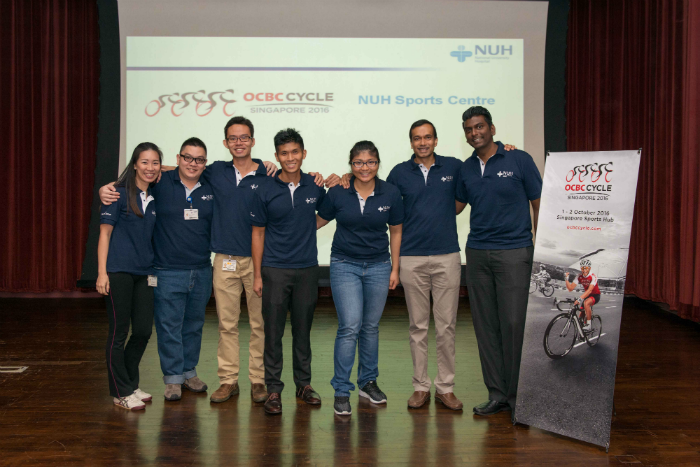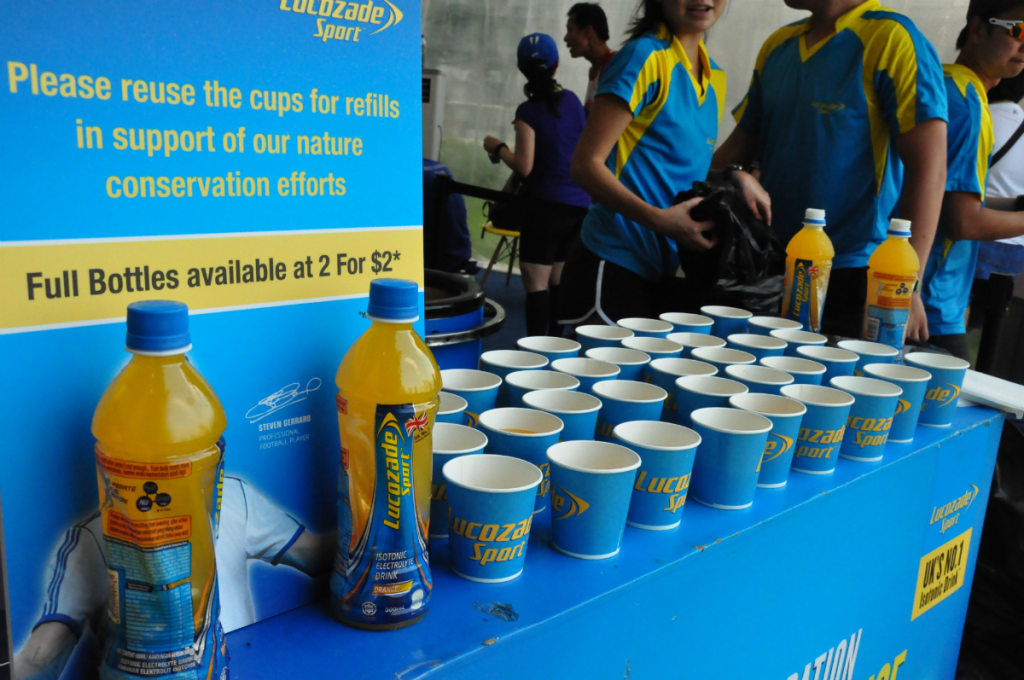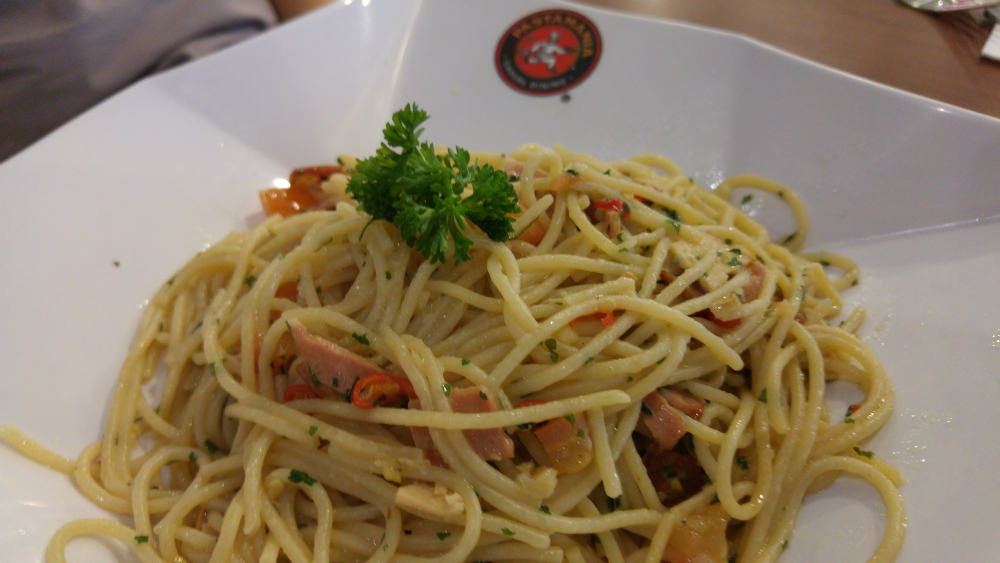To prepare participants for the OCBC Cycle 2016, which takes place on 1 and 2 October, a series of talks were held recently at the National University Hospital (NUH).
One of these talks was conducted by Kejendran S/O Mangaikarasu, a Senior Dietician at the NUH Sports Centre. He spoke on Sports Nutrition for cyclists and other endurance athletes.

The team from National University Hospital Sports Centre at the injury prevention and management talk at NUH. (Photo Credit: OCBC Cycle 2016)
Carbohydrates as the primary source of fuel
Said Kejendran, “Carbohydrates are the primary source of fuel for the body. Inadequate carbs during exercise leads to problems such as fatigue. Your carb requirements though, depends on your type, frequency and intensity of activity.”
The three main types of carbs are complex carbs, simple carbs and dietary fibres.
Complex carbs generally include brown rice and brown bread and are slower to digest, preventing the blood sugar from spiking. Said Kejendran, “These should form the basis of your main meals.”
Simple carbs include white rice and pasta, and are digested by the body quickly, thus making them a great source of fuel immediately before any sports activity.
Added Kejendran, “Dietary fibres on the other hand, are indigestible by the body and foods high in fibres, such as veggies and fruits with edible skins, and are slow to be absorbed by the body, keeping you fuller for longer.”
Proteins are also important
Besides carbohydrates, proteins are also important to consume. Said Kejendran, “Proteins have structural and functional growth and most of our hormones are made of proteins.”
He added, “But the amount of proteins that need to be consumed, depends on the type and intensity of training. Endurance athletes need more proteins, to aid in the recovery of their muscles. Strength athletes interested in gaining muscle mass need more proteins at first, but not in the subsequent stages as their muscles adapt.”
Foods that are high in protein include meat, fish, eggs and seafood.
Does not believe in high fat – low carb diets
Kejendran however, does not believe in high fat – low carb diets.
Said the nutritionist, “Such diets are known as Ketogenic diets. The body stores fat but the stored fats can only be utilised in certain conditions. By forcing the body to use ketones or fats during training, this can lead to side effects such as headaches and fatigue. I think there is not enough evidence to use it on a daily basis.”
He added, “While low intensity activities may burn fats, the body will eventually switch to using carbs. The body also uses a combination of both fats and carbs throughout the day, for normal bodily functions.”
Hydration is important
Besides food, Kejendran also strongly recommended athletes to hydrate themselves well.
He said, “Proper hydration prevents heat related injuries and dehydration. Dehydration affects a person’s mental capacity. Start any exercise in fluid balance and develop a hydration plan for any exercise longer than 30 minutes. Drink small amounts throughout the activity.”
Added the nutritionist, “If you are well hydrated, your urine should be light coloured. If it is dark, it means you are lacking hydration.”
Consumption when engaging in sports activities
Before any sports activity lasting more than one hour, Kejendran added that athletes require 1 – 4 grams of carbohydrates per kilogram of body weight, and this should be taken one to four hours before the event to allow the carbohydrates to digest.
He added, “But this is based on the individual person’s tolerance and varies from one person to another.”
During the activity, the athlete needs about 30 – 60 grams of carbohydrates per hour, to keep themselves going. Said Kejendran, “Sports drinks containing 6 – 8 percent of carbs and gummy bears will help.”
After sports, Kejendran stressed that it is important for athletes to replenish their carbohydrate stores. He said, “Take about 1 – 1.2 grams of carbohydrates per kilogram of body weight within the first four hours after exercise.”
He added, “And within the first 30 minutes after activity, take 20 grams of proteins, as endurance activity can break down proteins as well. Proteins are also helpful for recovery of muscles and tissues.”
Carbo Loading
Kejendran however pointed out a common practice known as Carbo Loading, that athletes engage in prior to key endurance races.
He added, “During this phase, athletes will reduce exercises 1 – 3 days before their race and increase their carb intake by 8 – 12 grams per kilogram of body weight. This is meant for serious athletes and those exercising for more than 90 minutes.”
He added “A weight gain of about 2kg is expected when carbo loading, and due to the sheer volume of carbohydrates required, you will have to take plenty of simple sugars, such as sports drinks, in order to get enough carbohydrates.”
Replenish Fluid Loss
In addition, Kejendran also stressed that athletes should weigh themselves before and after activity and any loss in weight is equivalent to fluid loss.
Said the nutritionist, “You will lose 1L of fluid for every 1kg of weight loss. This must be replenished within 4 – 6 hours after the activity has been completed.”




Leave a Comment